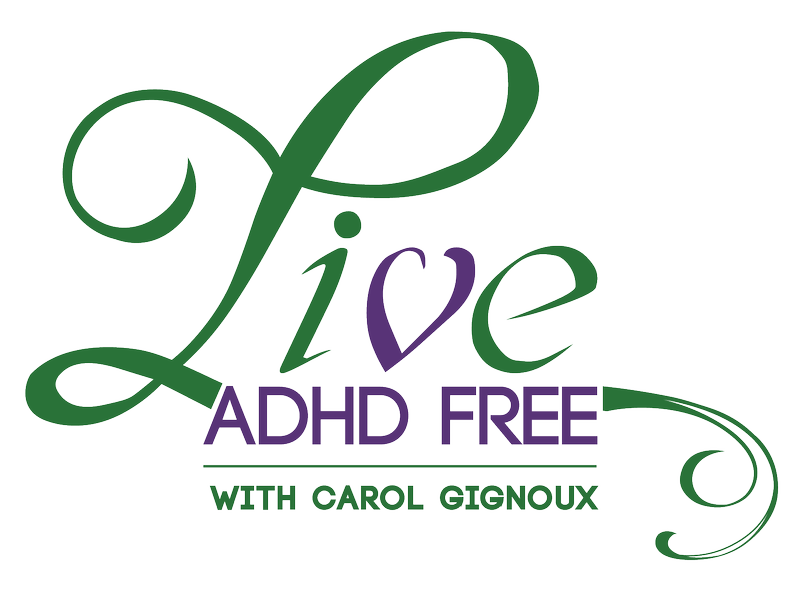We train our coaches to focus on and manage ADHD-related issues such as:
1. ADHD and the Brain
ADHD is a brain-based (neuro) biological disorder. There seems to be two major components of the brain that affect ADHD: biochemical imbalances and structural differences. They are known to interact with each other in complex ways. The neurobiology of ADHD affects the executive functioning of the brain. These functions impact working memory, activation and arousal, emotional control, internalized language and complex problem solving. When used in coaching they provide a powerful means of helping clients to understand and to turn their lives around.
2. Creating Structures and Systems
The most important aid in an ADHD person’s life is structure. Structure includes scheduling tasks and appointments, maintaining a non-distracting environment, pre-planning, and using people and other resources daily to keep them on the right track. Having sufficient structure helps manage the difficulties of ADHD living. Coaching supports the ADHD client to create the structure they need to be successful and the habits to keep it in place.
Systems are predictable support mechanisms that ADHD people rely upon. They allow people them to: (1) keep track of bills and finances (2) manage home maintenance tasks like laundry, dishes, shopping, clutter (3) keep up with phone calls, making and getting to appointments on time, (4) prioritize and organize daily existence in a way that supports good health and a balanced life. Systems can take many forms but what they all help to create habitual actions that support the ADHD person to get things done predictably, reliably and successfully.
3. Understanding the Past through an ADHD Lens
Growing up with ADHD is hard. On one hand people with ADHD are often above the curve in intelligence, creativity and know how. On the other hand, people with ADHD are often left feeling that they are lazy, crazy or stupid. This is the enigma of ADHD. The truth, of course, is that people with ADHD are not lazy, crazy or stupid but instead are impulsive, distractible, and disorganized. When someone is diagnosed with ADHD, it can be such a relief for them to think back through their past experiences and with their coach reinterpret these experiences in the new light of what they know to be true about how Attention Deficit Disorder affects daily existence.
4. Giving Non-judgmental Support
Many people with ADHD blame themselves for what they consider to be their many faults and shortcomings. They tend to be impatient and hold to impossibly high personal standards which they cannot live up to and which they eventually give up on. This cycle can be self perpetuating. The coach has the opportunity here to intervene in this cycle and model patience and non-judgmental support in order to teach patience and understanding to the client. Clients who develop more patience and understanding with themselves may no longer need to hold themselves to impossibly high levels of achievement.
5. Addressing Overwhelm, Impulsivity and Adrenaline Living
It is common and predictable that people with ADHD get overwhelmed. The difficulty of managing too many tasks at once can easily cause panic in someone with ADHD and render their coping skills useless. There is no fool proof way to address this challenge and it may always be a part of the person’s life. However, people with ADHD can be taught how to slow down, breathe and take stock of the situation before they allow panic to take over.
Impulsivity is probably the most common ADHD trait. It is behind most ADHD behavior. While there is no perfect strategy for managing impulsivity, ADHD Coaches can help their client better understand how impulsivity works in their life so they can gain greater control over it.
People with ADHD tend to procrastinate and wait until their adrenaline kicks in before starting difficult tasks. Starting, following through and completing tasks on time are all executive functions adversely affected by ADHD. Without the full use of these executive functions many people with ADHD struggle and fight with their tasks and often either give up or refuse to do them until the eleventh hour. By this time they rely on their adrenaline may get the job done yet doing so results in irritable behavior, poorer performance, dissatisfaction with self, late completion and disrupted relationships.
6. Managing the Physical and Cognitive/Emotional Effects of ADHD
Attention Deficit Disorder, like many disabilities, has a physical and emotional component. There are many ways to go about treating these effects. The most common physiological treatments at this time are medication, sensory integration exercises, physical exercise and neurofeedback including brain scanning. The most common treatments for the cognitive/emotional aspect are psychological therapies like psychiatry, psychotherapy, hypnosis and coaching. ADHD Coaching addresses the client’s cognitive systems that inform their behavior and assists them in creating habits for better personal and professional results.
7. Strategies for Behavioral Change
As Albert Einstein said, “nothing changes until something moves.” He was speaking about the physical universe but his wisdom applies to coaching as well. Insight is only as valuable as the change it elicits in the coaching client. Structure and systems only work when employed. Impulsivity, overwhelm and adrenaline living can only be transformed when new, more productive behaviors take their place. We will explore many useful strategies that affect change in your client.
Click here to fill out an application for our ADHD Coach Training Program.

